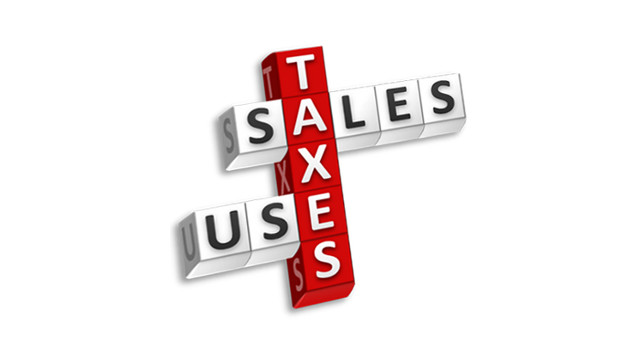On June 30, 2021, Missouri became the last state with a sales tax to require out-of-state sellers and marketplace facilitators to collect and remit sales and use tax. It’s been a long time coming.
Senate Bill 153 establishes economic nexus, which bases a sales tax collection obligation solely on a remote seller’s economic activity in the state. Starting January 1, 2023, an out-of-state business with no physical presence in Missouri must register with the Missouri Department of Revenue and comply with all applicable sales and use tax laws if, in the current or previous calendar year (determined quarterly), it had cumulative gross receipts of at least $100,000 from the sale of tangible personal property in the state.
Marketplace facilitators engaged in business in Missouri (i.e., those with economic nexus or a physical presence in the state) will be liable for the tax due on all sales made through the marketplace on and after January 1, 2023 — both direct sales and those made on behalf of a third party.
Years of work finally pay off
Missouri lawmakers have been trying to get an economic nexus and marketplace facilitator bill across the governor’s desk ever since the Supreme Court of the United States issued its groundbreaking decision in South Dakota v. Wayfair, Inc., on June 21, 2018.
The Wayfair decision overturned a rule that prevented states from taxing the sales of businesses with no physical presence in the state. Although physical presence in a state still creates a sales tax collection obligation, it’s no longer the sole requisite because of Wayfair.
One reason previous attempts to establish economic nexus and a marketplace facilitator law in Missouri failed is because the state’s sales and use tax system is so complex. There are more than 2,000 local taxing jurisdictions in the state, and each has its own reporting code and rate. Making matters more complex, these jurisdictions can overlap; combined rates often include the state, county, and municipal rates plus one or more of more than a dozen special district taxes (e.g., ambulance, library, regional recreation, transportation, etc.). Currently, most local taxing jurisdictions levy a local sales tax only; very few have local use tax, though that could change once Missouri starts taxing remote sales.
The Missouri Department of Revenue already has a sales tax mapping tool that generates the total combined sales tax rate for locations throughout the state. The new law requires the department to create and maintain a use tax mapping tool. This will help out-of-state vendors, who are liable for use tax rather than sales tax — the purview of in-state businesses. Local use tax rates often differ from local sales tax rates in Missouri.
SB 153 also tasks the department with providing reasonable notice of taxability changes. Additionally, businesses won’t be held liable for charging or collecting incorrect tax if the business relied on erroneous data provided by the department.
Certified service providers could simplify compliance for remote sellers
Although SB 153 doesn’t obligate Missouri to join the Streamlined Sales and Use Tax Agreement , it authorizes the Missouri Department of Revenue to “consult, contract, and work jointly with the Streamlined Sales and Use Tax Agreement’s Governing Board to allow sellers to use the governing board’s certified service providers and central registration services.” Alternatively, the department could “consult, contract, and work with certified service providers independently.”
The Streamlined Sales and Use Tax Agreement was created to ease the burden of sales and use tax compliance for remote sellers. To that end, its 24 member states developed and maintain certain streamlining measures, including: a central, electronic registration system; uniform sourcing rules for taxable transactions; and uniform tax base definitions and rules.
In Streamlined Sales Tax (SST) member states, businesses can opt to outsource the bulk of sales and use tax administration to an SST Certified Service Provider (CSP) like Avalara. CSP services are available to any business, and for those that qualify as a “CSP-compensated seller” (aka, “volunteer seller”), the cost is subsidized by the state.
To qualify as a volunteer seller, a business must meet certain criteria. For example, during the 12-months prior to registration in the SST member state, the business must have:
- Less than $50,000 of property in the state
- Less than $50,000 of payroll in the state
- Less than 25 percent of total property or payroll in the state
- No fixed place of business for more than 30 days in the state
A handful of states, including Illinois and Pennsylvania, offer independent CSP programs that function much like the SST CSP program. Under SB153, Missouri could do the same.
A fun twist on local use tax collection
Interestingly, Missouri will allow local governments to exclude remote vendors from the obligation to collect local use tax enacted prior to January 1, 2023. A remote seller or marketplace facilitator won’t be subject to local use taxes enacted prior to January 1, 2023, unless that seller would have been subject to the tax prior to January 1, 2023, or a majority of voters in the district approve an expansion of the tax after January 1, 2023. Remote sellers will be subject to any new local use tax enacted on or after January 1, 2023.
This local use tax provision will further complicate Missouri’s tax system, as does the fact that many local taxing jurisdictions currently don’t levy local use taxes. Having the ability to tax remote sales will likely incentivize jurisdictions to levy a local use tax on or after January 1, 2023. That could make for a lot of rate changes.
Start preparing
Although out-of-state retailers and marketplace facilitators don’t need to worry about Missouri’s new collection requirement just yet, it’s not too early to start planning for the changes it will bring. If your sales into Missouri meet or exceed the state’s $100,000 economic nexus threshold today, you’ll likely be required to register then collect and remit Missouri use tax on January 1, 2023.
======
Gail Cole has been researching, writing, and reporting tax news for Avalara since 2012. She’s on a mission to uncover unusual tax facts and make complex laws and legislation more digestible for accounting and business professionals — or anyone interested in learning about t
Thanks for reading CPA Practice Advisor!
Subscribe Already registered? Log In
Need more information? Read the FAQs
Tags: Sales Tax





